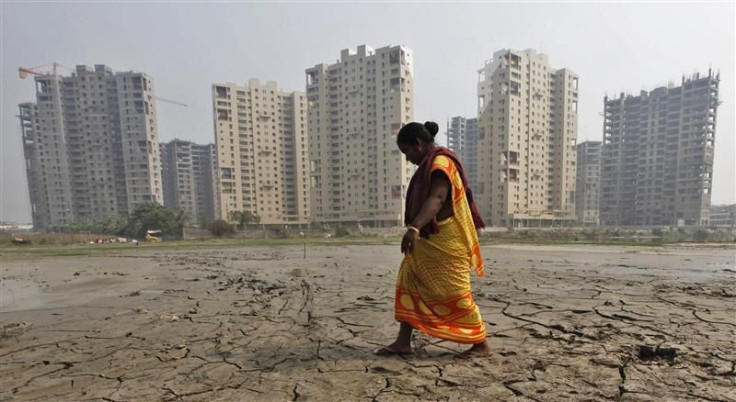India's Q4 Economic Growth Slumps To Nine-Year Low; Trade Bodies Demand Immediate Government Action

Corroborating the fears of an economic slowdown, India's economic growth slumped to 5.3 percent, a nine-year-low in the fourth quarter ending March 31, according to a Thomson Reuters data. The growth rate was 9.2 percent in the same period a year earlier.
The fourth quarter economic growth in 2011-12 is the lowest since 2002-2003 when it was 3.6 percent.
The economic growth in the fourth quarter of 2011-12 was much lower than the analysts' expectation which ranged between 5.5 and 7.3 percent. The shocking growth rate indicates that the economy is still under pressure from a dip in manufacturing sector, fall in rupee and high inflation.
Earlier, private analysts had estimated that India's growth rate would be between 6.0 and 6.5 percent for the fiscal year ending March 31, 2013, while the government data indicated 7.5 percent growth forecast.
India's Gross Domestic Product (GDP) growth was at a modest 6.5 percent in 2011-12 compared to an 8.4 percent growth in 2010-11.
Economists have expressed disappointment over Indian economy's poor performance.
The data highlights the unusual degree of weakening of the country's economy, likely driven by poor investment and widening trade gap, Dariusz Kowalczyk, an economist at Credit Agricole CIB in Hong Kong, was quoted as saying by Reuters.
According to the data, manufacturing sector declined by 0.3 percent in the quarter while agriculture sector grew by a nominal 1.7 percent compared to 7.5 percent growth in the same period in 2010-11.
Construction sector declined to 4.8 percent in the fourth quarter of 2011-12 against 8.9 percent a year earlier.
Other sectors like trade, hotels, transport and communication also saw a slump as the growth rate declined from 11.6 percent in the fourth quarter of 2010-11 to 7 percent for the same period in 2011-12.
Mining and quarrying production was the major sector that demonstrated progress as it grew at 4.3 percent in the quarter under review, compared to a 0.6 percent growth in the fourth quarter of 2010-11.
Services sector, including insurance and real estate, remained unchanged at 10 percent in the fourth quarter, according to the Reuters report.
Trade Bodies Demand Immediate Government Action
Economists have expressed shock over the disappointing performance of the Indian economy and said that it is high time the government introduced policy reforms to boost growth. Trade bodies like the Confederation of Indian Industry (CII) and Associated Chambers of Commerce and Industry of India (Assocham) believe that the Reserve Bank of India will be prompted to cut interest rates soon.
Pointing to the need for announcing a comprehensive Economic Revival Package at the earliest, CII director general Chandrajit Banerjee told Business Line that with a huge fiscal deficit and a widening current account deficit, this calls for immediate and bold actions from the Government and the RBI in a coordinated manner.
However, it is going to be difficult for the policy makers to take immediate action as they will have to balance between the rising inflation and the growth incentives in the form of rate cuts.
In an interview to CNBC-TV18, C Rangarajan, chairman of the Prime Minister's Economic Advisory Council, agreed that the GDP data was disappointing. However, he said that policy action will depend upon how inflation behaves. I don't think that the monetary authority will be comfortable in moving towards easing of the policy further, unless the inflation situation also moves down and the inflationary tendency are seen to be coming down. Otherwise, it becomes very difficult for the monetary authority to adopt a stance of easing. I still think that while growth is important and growth needs to be stimulated and monetary policy can have a role there; you cannot ignore what is happening to the inflationary situation.
© Copyright IBTimes 2024. All rights reserved.






















